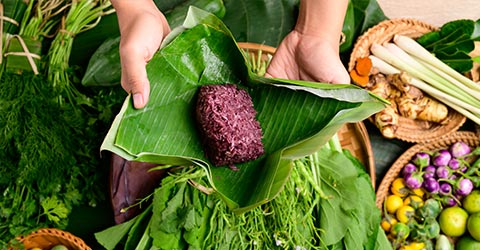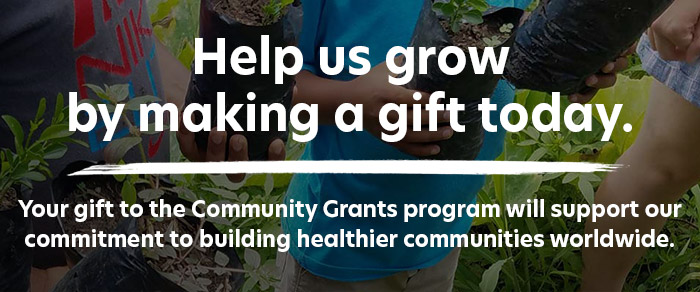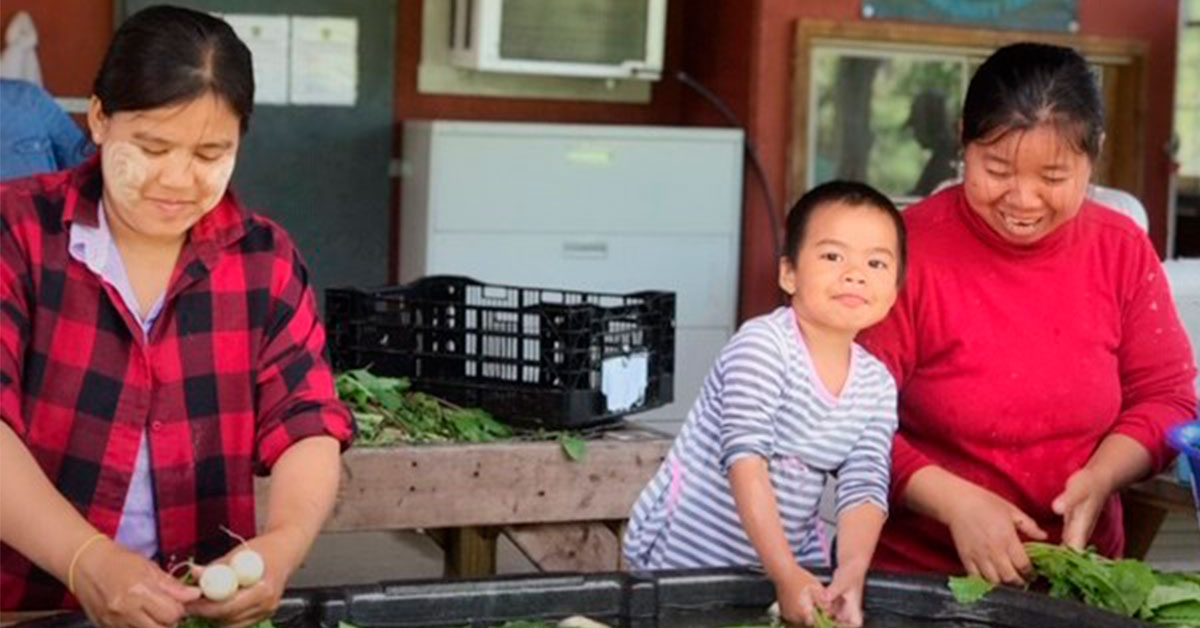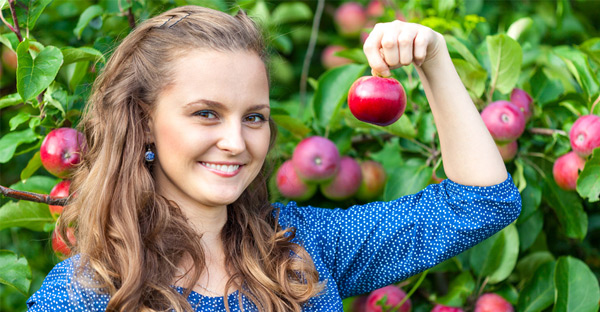
In the field of nutrition, it’s often implied that the poor eating patterns and subsequent health outcomes we observe in America are due to a lack of knowledge: people simply do not know the power plant-based diets have on longevity and disease prevention.[1][2][3][4] This framing allows for a straightforward solution: educate the people and they will heal themselves. But the science behind how food impacts our health is more available than ever to the public. There are over 40,000 results for plant-based nutrition books on Amazon, many of which are best sellers, spreading the same message: food is medicine. So, if education was the issue and it’s now so widely available, why are lifestyle diseases like cancer and heart disease still the top killers among Americans?[5]
Evidence-Based Nutrition Only Goes So Far
As a dietetics student, I was taught that nutrition education involves both knowledge and skill. It’s not enough to teach people why a food is healthy; they need to know how to incorporate that food into their lives. We are all, in fact, humans that live in complex societies, not test subjects in controlled science experiments. We respond to ideas that feel familiar and eat foods in the context of culture and communities. This is the limitation to evidence-based nutrition: reducing food to a combination of healthy ingredients and expecting people to drop their memories and attachments to eating in favor of a prescription of superfoods. I’d argue that it is not prestigious physicians and scientists who have majorly led this health movement but the food bloggers and success stories that show us practical ways to live plant-based and tell us, “Hey, you can do this too.”
The Need for Culturally Appropriate Nutrition Resources
The bounty of vegan cookbooks and bloggers guide us through whole food, plant-based (WFPB) lasagna, green bean casserole, and chili recipes. When we read stories of families finding renewed health through a WFPB lifestyle, we are inspired to change because we see a little bit of ourselves in them. However, these familiar and nostalgic threads that support change speak mainly to a specific type of American identity: the White American identity.
As the only vegan in my family, I, too, have had my food be partitioned from the rest of the holiday’s meal, and I have begrudgingly eaten pathetic salads at restaurants while everyone else gorged on meat. But while there are thousands of WFPB recipes out there that might convince your White uncle that mac and cheese can, indeed, be made without dairy, where am I to go for WFPB versions of my Chinese aunt’s beloved dishes, like jianbing and Sichuan fish hot pot? Where can I get guidance on how to address deeply rooted trauma my parents experienced that have led them to idolize meat and dairy as symbols of class and status? A lack of knowledge about the power of plant foods is not the issue. In fact, the concept of food as medicine got its roots from Chinese medicine.[6] But the lack of representation of different cultures within the plant-based movement is glaring and the consequences are real. There is an abundance of research showing that culture and culturally relevant nutrition interventions are important for diet change and weight loss among Black and Asian Americans.[7][8][9][10][11]
“So, while we pat ourselves on the back thinking the WFPB movement is reaching so many, in reality, we are ignoring the unique needs of non-White Americans and potentially widening the gap of these health disparities.”
A Call for Diverse Plant-Based Voices
Culturally appropriate nutrition resources are especially important in addressing the health disparities we see among different races and ethnicities. In 2015-2016, Black and Hispanic Americans were most likely to have hypertension, heart disease, and diabetes compared to other races.[12] And while Asian Americans seem to have lower risks of these lifestyle diseases,[12] our experiences are clumped together, masking the higher risk of heart disease among Filipino and South Asian Americans.[13][14] So, while we pat ourselves on the back thinking the WFPB movement is reaching so many, in reality, we are ignoring the unique needs of non-White Americans and potentially widening the gap of these health disparities. Including and amplifying voices of color are vital to the growth of this plant-based movement.
For example, Tracye McQuirter, MPH’s, “10,000 Black Vegan Women” program focuses on the needs and experiences of Black women to live healthier lives and transition into a plant-based diet.[15] Joanne Molinaro, JD, the TikTok star behind The Korean Vegan, shares how she preserves her identity as a Korean American through veganized traditional dishes and helps reassure other Asian Americans that they will not lose their identity or their family if they choose to eat plant-based.[16] And while these badass women exemplify the future of food and health that I yearn to see, they are a mere few examples in a sea of White physicians, scientists, chefs, and influencers who perpetuate this narrow plant-based movement.
My parents still view veganism as a foreign identity of wealthy White people eating avocado toast at Whole Foods. What they need are Asian physicians and scientists to legitimize tofu and soy milk as adequate sources of calcium and protein, and bloggers to recreate vegan versions of nostalgic dishes like zhá jiàng miàn and hóngshāo yú. In the meantime, I’ll continue to raise the voices of Asian, Black, Latinx, and Indigenous activists who help their communities live healthier lives while, hopefully, adding to this inclusive WFPB future. But I’m still waiting on a really great chāshāo bāo recipe that might convince my family to finally go vegan.
References
- Mishra BN. Secret of eternal youth; teaching from the centenarian hot spots (“blue zones”). Indian J Community Med. 2009;34(4):273-275. doi:10.4103/0970-0218.58380
- Willcox BJ, Willcox DC, Suzuki M. Demographic, phenotypic, and genetic characteristics of centenarians in Okinawa and Japan: Part 1-centenarians in Okinawa. Mech Ageing Dev. 2017;165(Pt B):75-79. doi:10.1016/j.mad.2016.11.001
- Bail J, Meneses K, Demark-Wahnefried W. Nutritional status and diet in cancer prevention. Semin Oncol Nurs. 2016;32(3):206-214. doi:10.1016/j.soncn.2016.05.004
- Melina V, Craig W, Levin S. Position of the Academy of Nutrition and Dietetics: vegetarian diets. J Acad Nutr Diet. 2016;116(12):1970-1980. doi:10.1016/j.jand.2016.09.025
- Centers for Disease Control and Prevention. Leading Causes of Death. CDC/National Center for Health Statistics. https://www.cdc.gov/nchs/fastats/leading-causes-of-death.htm. Published February 6, 2020. Accessed August 22, 2020.
- Wu Q, Liang X. Food therapy and medical diet therapy of Traditional Chinese Medicine. Clinical Nutrition Experimental. 2018;18:1-5. doi:10.1016/j.yclnex.2018.01.001
- James DCS. Factors influencing food choices, dietary intake, and nutrition-related attitudes among African Americans: application of a culturally sensitive model. Ethn Health. 2004;9(4):349-367. doi:10.1080/1355785042000285375
- Lofton S, Julion WA, McNaughton DB, Bergren MD, Keim KS. A systematic review of literature on culturally adapted obesity prevention interventions for African American youth. J Sch Nurs. 2016;32(1):32-46. doi:10.1177/1059840515605508
- Song H-J, Han H-R, Lee J-E, et al. Translating current dietary guidelines into a culturally tailored nutrition education program for Korean American immigrants with type 2 diabetes. Diabetes Educ. 2010;36(5):752-761. doi:10.1177/0145721710376328
- Di Noia J, Furst G, Park K, Byrd-Bredbenner C. Designing culturally sensitive dietary interventions for African Americans: review and recommendations. Nutr Rev. 2013;71(4):224-238. doi:10.1111/nure.12009
- Kong A, Tussing-Humphreys LM, Odoms-Young AM, Stolley MR, Fitzgibbon ML. Systematic review of behavioural interventions with culturally adapted strategies to improve diet and weight outcomes in African American women. Obes Rev. 2014;15 Suppl 4:62-92. doi:10.1111/obr.12203
- Centers for Disease Control and Prevention. Racial and Ethnic Disparities in Heart Disease; 2019. https://www.cdc.gov/nchs/hus/spotlight/HeartDiseaseSpotlight_2019_0404.pdf. Accessed August 22, 2020
- Volgman AS, Palaniappan LS, Aggarwal NT, et al. Atherosclerotic cardiovascular disease in South Asians in the United States: epidemiology, risk factors, and treatments: A scientific statement from the American Heart Association. Circulation. 2018;138(1):e1-e34. doi:10.1161/CIR.0000000000000580
- Holland AT, Wong EC, Lauderdale DS, Palaniappan LP. Spectrum of cardiovascular diseases inAsian-American racial/ethnic subgroups. Ann Epidemiol. 2011;21(8):608-614. doi:10.1016/j.annepidem.2011.04.004
- McQuirter T. 10,000 Black Vegan Women. By Any Greens Necessary. https://byanygreensnecessary.com/10000. Published 2020. Accessed December 19, 2020.
- Matei A. ‘The Korean Vegan’ Makes Cooking TikToks That Get Real, Quick. Bon Appétit. https://www.bonappetit.com/story/the-korean-vegan. Published October 21, 2020. Accessed December 19, 2020.
You Might Also Like
Copyright 2026 Center for Nutrition Studies. All rights reserved.
Deepen Your Knowledge With Our
Plant-Based Nutrition
Certificate
Plant-Based Nutrition Certificate
- 23,000+ students
- 100% online, learn at your own pace
- No prerequisites
- Continuing education credits







